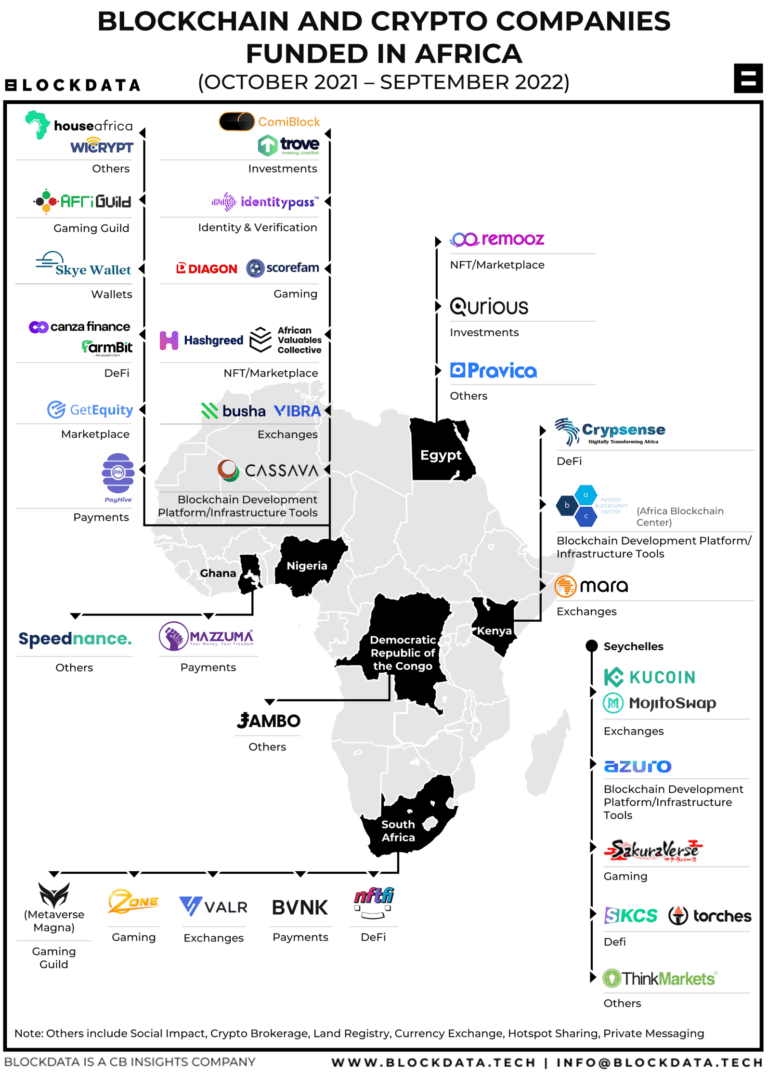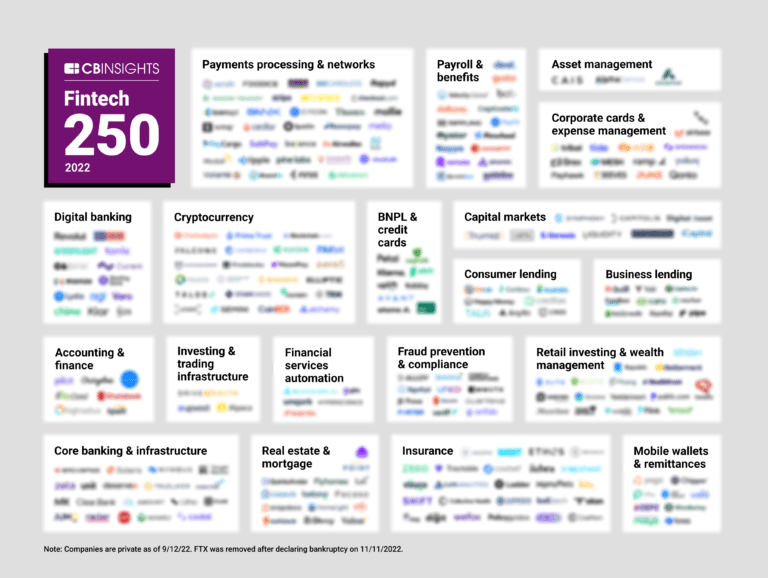
Alchemy
Founded Year
2017Stage
Series D | AliveTotal Raised
$545MValuation
$0000Last Raised
$200M | 3 yrs agoMosaic Score The Mosaic Score is an algorithm that measures the overall financial health and market potential of private companies.
+17 points in the past 30 days
About Alchemy
Alchemy focuses on web-three development. It offers a platform that provides application programming interfaces, software development kits, and tools to build and scale web three applications, enabling faster transactions and real-time data for custom events. The company primarily serves the blockchain and decentralized application (Dapp) sectors. It was founded in 2017 and is based in San Francisco, California.
Loading...
Alchemy's Products & Differentiators
NFT API
Our NFT API lets you instantly find, verify, and display any NFT, across all major blockchains
Loading...
Research containing Alchemy
Get data-driven expert analysis from the CB Insights Intelligence Unit.
CB Insights Intelligence Analysts have mentioned Alchemy in 3 CB Insights research briefs, most recently on Oct 20, 2022.

Oct 20, 2022
30+ blockchain and crypto companies based in Africa
Oct 4, 2022 report
The Fintech 250: The most promising fintech companies of 2022
Jul 29, 2022
Where a16z is investing in crypto and blockchainExpert Collections containing Alchemy
Expert Collections are analyst-curated lists that highlight the companies you need to know in the most important technology spaces.
Alchemy is included in 6 Expert Collections, including Unicorns- Billion Dollar Startups.
Unicorns- Billion Dollar Startups
1,270 items
Blockchain
12,849 items
Companies in this collection build, apply, and analyze blockchain and cryptocurrency technologies for business or consumer use cases. Categories include blockchain infrastructure and development, crypto & DeFi, Web3, NFTs, gaming, supply chain, enterprise blockchain, and more.
Fintech
9,449 items
Companies and startups in this collection provide technology to streamline, improve, and transform financial services, products, and operations for individuals and businesses.
Blockchain 50
100 items
Fintech 100
499 items
250 of the most promising private companies applying a mix of software and technology to transform the financial services industry.
Silicon Valley Bank's Fintech Network
88 items
We mapped out some of SVB's biggest clients, partnerships, and sectors that it serves using CB Insights’ business relationship data from SVB’s profile to uncover just how important it is to the fintech universe. The list is not exhaustive.
Latest Alchemy News
Mar 14, 2025
Friday, March 14, 2025 12:00 AM 24 Cryptocurrency exchange Gemini recently made headlines by organizing a record-breaking drone show that featured a massive Bitcoin logo, celebrating the US Strategic Bitcoin Reserve initiative. The event took place on March 13 in Austin, Texas, where 1,000 drones were deployed to create the largest aerial display of a currency symbol, officially recognized by Guinness World Records. The show not only showcased the iconic Bitcoin logo but also included depictions of significant milestones in space exploration, such as a rocket launch and moon landing, emphasizing the theme of innovation in the financial landscape. Gemini’s drone display was designed to provoke thought about the future of money, with the Bitcoin logo accompanied by the phrase, “Go where dollars won’t.” This creative approach highlights the growing acceptance and significance of cryptocurrencies in the modern economy. Following the event, Gemini received a certificate for achieving the record for the largest aerial display of a currency symbol formed by multirotor drones, marking a significant milestone in the intersection of technology and finance. The Bitcoin logo itself has a rich history, evolving over the past 16 years through community feedback. Initially created by Satoshi Nakamoto, the logo has undergone several iterations, with the current version featuring a bright orange background and the iconic “₿” symbol. This evolution reflects the dynamic nature of the cryptocurrency community and its adaptability to change. As Bitcoin continues to gain traction, events like Gemini’s drone show serve to celebrate its legacy and future potential in reshaping the financial landscape. On the eve of International Women’s Day, we had the opportunity to speak with Marta Belcher, a trailblazer in blockchain law and a prominent advocate for civil liberties. As the president of the Filecoin Foundation and its sister organization, the Filecoin Foundation for the Decentralized Web, Belcher has made significant contributions to the cryptocurrency landscape. Her extensive experience includes serving as general counsel and head of policy at Protocol Labs, as well as holding positions on the Board of Directors of Creative Commons and the Blockchain Association. Belcher's influence extends to legislative bodies worldwide, where she has testified on crypto policy, showcasing her dedication to shaping the future of blockchain technology.Belcher's journey into technology policy began during her college years when she led a nonprofit organization called No Worries Now, which supported teens with life-threatening illnesses. This experience opened her eyes to the impact of technology on healthcare, particularly in advocating for public umbilical cord blood banking. Her early advocacy work laid the foundation for her career in technology law, where she recognized the potential of blockchain to protect civil liberties and privacy. Since her first involvement in the blockchain space in 2015, Belcher has been instrumental in various initiatives, including writing the first blockchain-transferable software license and defending patent litigation against blockchain companies.Despite holding multiple roles, Belcher emphasizes a strategy of 'work-life integration,' driven by her mission to leverage technology for civil liberties. She highlights the presence of remarkable women in the crypto industry, countering the narrative of a male-dominated space. With a leadership team at the Filecoin Foundation that is predominantly female, Belcher believes that the focus on talent rather than gender has led to a diverse and effective organization. Her insights reflect a growing recognition of women's contributions to the blockchain sector, underscoring the importance of inclusivity in shaping the future of technology. ETHDenver recently concluded, and it was a vibrant gathering where the atmosphere was lively, with attendees enjoying the camaraderie typical of web3 events. However, two significant observations emerged from the conference. Firstly, the event has grown too large for its original venue, indicating a burgeoning interest and participation in the web3 space. Secondly, there is a pressing need for the Web3 sector to broaden its horizons and engage with industries beyond its current scope.One of the highlights of ETHDenver was the series of live interviews conducted by DCN with projects focusing on Decentralized Physical Infrastructure (DePIN). These projects represent a unique intersection between the physical and digital realms, showcasing how blockchain technology can be applied to real-world infrastructure. This blend of digital innovation with tangible applications is crucial for the evolution of web3, as it opens up new avenues for growth and collaboration.As the web3 community continues to expand, it is essential for participants to explore partnerships and integrations with traditional sectors. This will not only enhance the relevance of blockchain technologies but also facilitate a more inclusive ecosystem that can address various societal challenges. The discussions and insights gathered from ETHDenver could serve as a catalyst for such developments, driving the web3 movement forward into new territories and applications. The upcoming White House Crypto Summit, hosted by US President Donald Trump, is set for March 7 and has generated significant interest within the cryptocurrency community. Despite the event's high profile, the attendee list is notably exclusive, with only 20 to 25 invitees expected to participate. Key figures from the Presidential Working Group on Digital Assets, including Treasury Secretary Scott Bessent and SEC Chair, are confirmed to attend. Additionally, a larger reception for those not invited to the roundtable is being organized nearby, indicating the event's importance and the administration's focus on digital assets.Among the confirmed attendees are prominent industry leaders such as Michael Saylor, Coinbase CEO Brian Armstrong, and Kraken CEO Arjun Sethi. Their participation highlights the summit's role in fostering dialogue between the government and the cryptocurrency sector. Attendees have expressed enthusiasm about the opportunity to collaborate with the Trump administration, with several sharing their excitement on social media. This summit represents a critical moment for the crypto industry as it seeks to engage with policymakers and shape the regulatory landscape in the United States.However, not all industry leaders are represented at the summit. Ripple CEO Brad Garlinghouse has not confirmed his attendance, raising questions about the inclusivity of the event. Additionally, representatives from the Solana and Cardano ecosystems have remained silent regarding their participation, despite President Trump's recent announcement about establishing a crypto strategic reserve. As the summit approaches, the cryptocurrency community is keenly watching how these discussions will influence the future of digital assets in America. In recent months, venture capital investments in decentralized infrastructure, particularly Decentralized Physical Infrastructure Networks (DePINs), have surged, signaling a shift in how traditional industries may operate. This trend is complemented by a notable increase in funding for Web3 gaming, reflecting a growing belief in blockchain's potential to revolutionize entertainment. As the crypto market experiences volatility, with Bitcoin's price fluctuating dramatically, investors are still finding confidence in long-term opportunities within blockchain and crypto startups. Key areas of focus include DePINs, Web3 gaming, and the tokenization of Real-World Assets (RWAs), which are seen as vital connections between traditional finance and the digital economy.A prime example of this trend is Alchemy's launch of a $5 million "Everyone Onchain Fund" aimed at accelerating Web3 adoption on Ethereum. By providing developers with significant credits for gas and computing, Alchemy is lowering barriers for new projects. This initiative not only supports developers but also enhances the Ethereum ecosystem's capabilities. Similarly, Mavryk Dynamics has secured $5 million to develop a layer-1 RWA tokenization platform, aiming to bridge traditional finance and DeFi. With over $360 million in RWAs already secured, Mavryk is poised to play a crucial role in the growing demand for on-chain asset representation.The decentralized derivatives market is also gaining traction, as evidenced by Rho Labs' recent $4 million seed round. Rho Protocol facilitates a decentralized rates exchange, allowing users to engage in staking, lending, and trading perpetual futures. This innovation is critical for normalizing funding rates between centralized and decentralized finance, enhancing the overall efficiency of the crypto landscape. As these developments unfold, the integration of blockchain technology into various sectors, including gaming and finance, continues to reshape the future of digital economies, highlighting the immense potential of Web3 solutions. Fluence has launched the DePIN Pledge, urging cryptocurrency firms and industry players to commit to utilizing decentralized physical infrastructure network solutions. This initiative is supported by prominent organizations such as IoTeX, Polygon, Helium, and Consensys. Fluence aims to encourage projects to publicly embrace decentralized infrastructure, fostering more transparent and resilient ecosystems. As the web3 and cryptocurrency landscape evolves, the importance of maintaining decentralization has become increasingly critical, especially in light of the growing reliance on centralized infrastructure by many projects.The DePIN Pledge allows firms that commit to it to be listed in a public directory on the DePIN Pledge website, enabling users and traders to identify and support companies that prioritize decentralization. Additionally, participating projects will receive a manifesto and a DePIN Pledge NFT, which is auditable on the Ethereum blockchain. This NFT serves as a symbol of their commitment to decentralization and can be showcased across various platforms and social media channels. Major crypto firms, including Infura, Outlier Ventures, and Blockscout, have also backed this initiative, highlighting a collective effort towards a decentralized future.Tom Trowbridge, Co-Founder & CEO of Fluence, expressed enthusiasm for the pledge, noting that it marks the beginning of DePIN adoption. He anticipates a diverse range of DePIN products and services emerging in the coming years. Clemens Wan, global solutions architect at Consensys, echoed this sentiment, emphasizing the need for decentralized infrastructure that aligns with the core values of web3. The DePIN Pledge represents a significant step towards ensuring that the foundational services of the industry reflect the principles of decentralization, ultimately realizing the full promise of web3.
Alchemy Frequently Asked Questions (FAQ)
When was Alchemy founded?
Alchemy was founded in 2017.
Where is Alchemy's headquarters?
Alchemy's headquarters is located at 548 Market Street, San Francisco.
What is Alchemy's latest funding round?
Alchemy's latest funding round is Series D.
How much did Alchemy raise?
Alchemy raised a total of $545M.
Who are the investors of Alchemy?
Investors of Alchemy include DFJ Growth Fund, Pantera Capital, Coatue, Addition, Andreessen Horowitz and 24 more.
Who are Alchemy's competitors?
Competitors of Alchemy include Validation Cloud, Morpheus Labs, SettleMint, Airstack, Zbyte and 7 more.
What products does Alchemy offer?
Alchemy's products include NFT API and 3 more.
Who are Alchemy's customers?
Customers of Alchemy include OpenSea, Adobe and Polygon.
Loading...
Compare Alchemy to Competitors

Blockdaemon focuses on providing blockchain infrastructure solutions within the blockchain economy. Its main offerings include secure wallet services, comprehensive node management, and crypto staking platforms designed for institutional-grade clients. Blockdaemon's products cater to a diverse range of sectors, including financial institutions, crypto platforms, and developers seeking scalable and secure blockchain integration. Blockdaemon was formerly known as Trak. It was founded in 2017 and is based in Los Angeles, California.

QuickNode specializes in blockchain infrastructure within the technology sector, offering a platform that powers secure, decentralized innovation. The company provides tools and resources, including real-time data delivery, custom datasets, event alerts, and comprehensive multi-chain capabilities. Its services cater to various sectors such as decentralized finance, gaming, digital identity, healthcare, public records, and voting systems. It was founded in 2017 and is based in Hallandale, Florida.
Moralis is a technology company that specializes in providing Web3 APIs and RPC nodes for the cryptocurrency and blockchain sectors. The company offers a suite of tools for accessing blockchain data, integrating NFTs, tokens, and DeFi protocols, as well as building and scaling dapps efficiently. Moralis primarily serves developers and businesses in the blockchain industry, offering solutions that cater to wallet and portfolio tracking, crypto tax and accounting platforms, and DeFi applications. It was founded in 2021 and is based in Stockholm, Sweden.

Kaleido operates as an enterprise-grade blockchain and digital asset platform operating within the technology sector. The company offers solutions for building and managing blockchain networks and digital assets, with a focus on simplifying the adoption of Web3 technologies for organizations. Kaleido provides a suite of services, including multi-region, multi-cloud blockchain networks, digital asset platforms, and Web3 middleware, all designed to meet the stringent security and compliance needs of enterprises. It was founded in 2017 and is based in Raleigh, North Carolina.
Moralis Academy specializes in blockchain and cryptocurrency education. It offers a range of online courses and certifications. Its main offerings include courses designed to teach web programming skills and provide blockchain certification for various career paths. It primarily serves individuals seeking to advance careers in the blockchain and cryptocurrency sectors. It was founded in 2017 and is based in Limassol, Cyprus.

Figment specializes in digital asset staking. It provides blockchain infrastructure services. The company offers a comprehensive staking solution for institutional clients, enabling them to earn rewards on their digital assets through a secure, non-custodial platform. Figment's services include seamless staking integration, portfolio reward tracking, API access, audited infrastructure, and protection against slashing risks. Figment was formerly known as Figment Network. It was founded in 2018 and is based in Toronto, Canada.
Loading...
